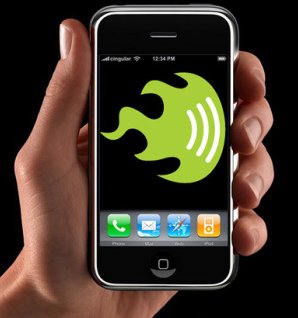 After losing to Verizon in the much-hyped spectrum auction, it is speculated that Google has written a letter to the FCC asking for permission to use the "White-Space" between channels 2 and 51 on TV sets (which is not used by cable services) to offer wireless broadband services. Such a move would offer up more coverage and maybe even faster, more reliable and affordable internet over air-waves. This could surely open a lot more possibilities for consumers, but what urges Google to take the lead?
After losing to Verizon in the much-hyped spectrum auction, it is speculated that Google has written a letter to the FCC asking for permission to use the "White-Space" between channels 2 and 51 on TV sets (which is not used by cable services) to offer wireless broadband services. Such a move would offer up more coverage and maybe even faster, more reliable and affordable internet over air-waves. This could surely open a lot more possibilities for consumers, but what urges Google to take the lead?Google was outbid by Verizon Wireless, but its not yet out of the game. Looks like it has already convinced the FCC to require the winner of a specific portion of the spectrum to allow subscribers to use any compatible wireless device they want. And now it has written a "public letter" to FCC urging it to open up the unused white-space for wireless internet. It feels that opening up the spectrum would enable the much-needed competition to the incumbent broadband service providers.
Google, who recently launched its own mobile OS called Android, is betting that it can boost its online advertising business by making it easier for mobile consumers to get access to the Internet on their mobile phones. But there's also a bit of speculation that Google has bigger plans, and it's push for an open space could be related to LTE and WiMAX technologies which would need space for the 4G network. And what's more, looks like this time the 2 giants Microsoft and Google are on the same side!! Bill Gates was quoted saying "I am hopeful that white-space will be made available so that Wi-Fi can explode in terms of its usage, even out into some of these less dense areas (of the United States) where distance has been a big problem for Wi-Fi."
As quoted by a company lawyer named Richard Witt, "Google would be willing to provide, at no cost to third parties, the technical support necessary to make these plans happen; This could include intellectual property and reference designs for underlying technologies, open geo-databases maintained by Google, and other supporting infrastructure. Of course we welcome others as well with an interest in helping to provide such support."
But the TV broadcasters are currently opposing the use of white space, fearing such usage would cause interference with television programming and could cause problems with a federally mandated transition from analog to digital broadcasting signals scheduled for Feb 2009. But Google in its letter urged the FCC to adopt a series of overlapping technologies, including "spectrum sensing," designed to prevent signals from interfering with each other. So for now, the war is on! Wait and watch to know who finally wins!
If you liked this post, please subscribe to our feed so you'd never miss an article again!











No comments:
Post a Comment